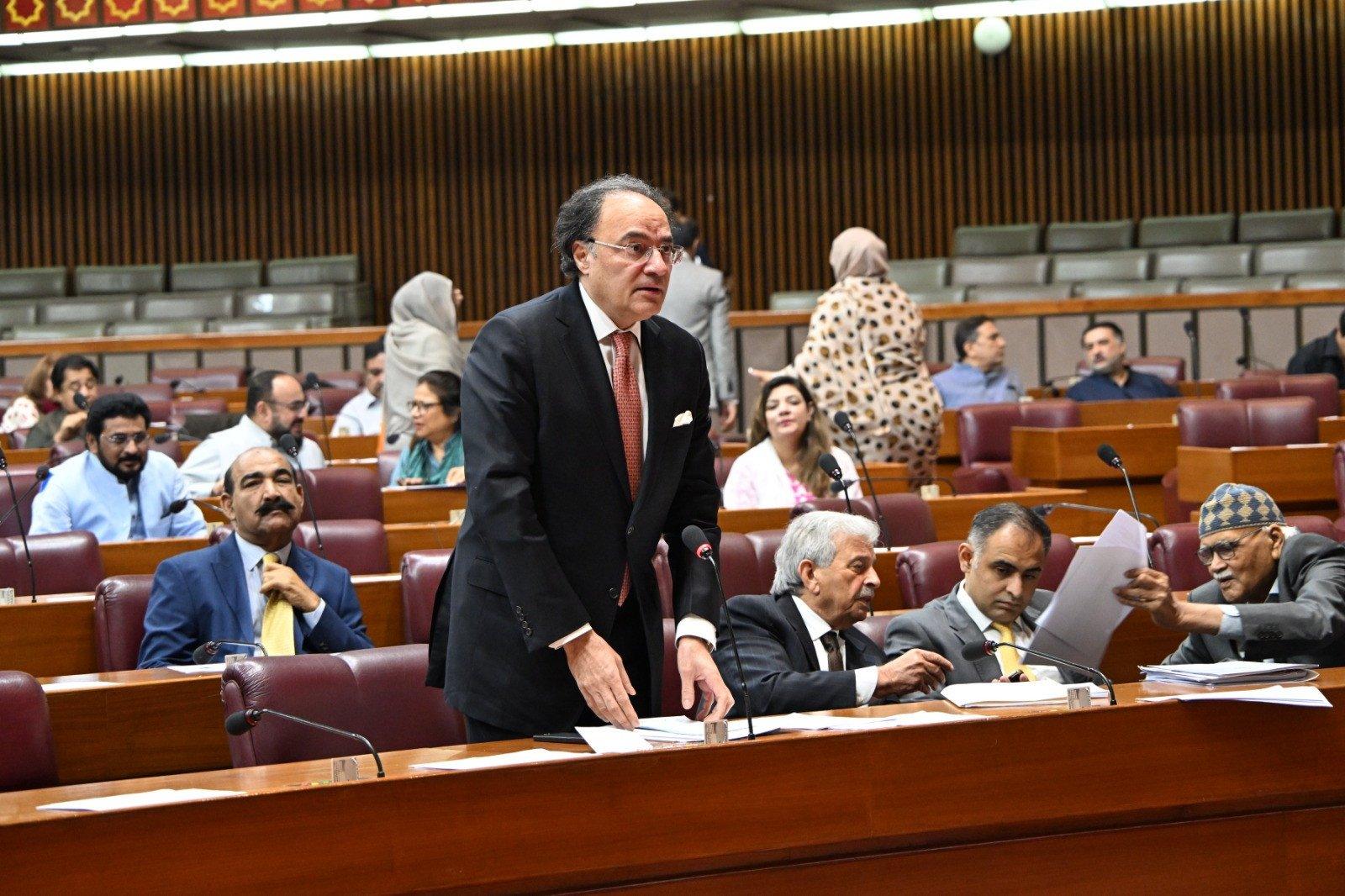On Thursday, the National Assembly approved the federal budget of 17.57 Billions of rupees for the financial year 2025-2026 with certain amendments, rejecting the opposition of calls to public consultations and paving the way for a series of tax reforms, income measures and government spending plans for the coming year.
The 2025 financial bill – aimed at giving effect to federal government’s financial proposals for the financial year from July 1, 2025 and to modify various existing laws.
The session, chaired by President Ayaz Sadiq, began with the Minister of Finance, Mohammad Aurangzeb, the 2025 financing bill, which was taken for a clause examination by clause.
The members of the opposition proposed an amendment to delay the approval of the bill and request a public consultation, but this amendment was largely rejected.
Learn more: Govt has accepted an exemption from income tax on annual salary less than RS1.2 m: Bilawal
Aurangzeb has decided to introduce the bill in the form recommended by the permanent committee, despite the opposition objections. One of the key clauses approved during the session addressed fraud to the sales tax. The bill presented measures to arrest people involved in tax fraud, including penalties to issue invoices without delivery of goods or falsification of tax files.
In addition, the changes have made the arrest of people trying to destroy tax evidence or provide false information declaration information.
Prime Minister Muhammad Shehbaz Sharif meets the president of the Pakistani Pakistani Party Bilawal Bhutto Zardari during the budget session in the National Assembly. pic.twitter.com/fznnwsfqov
– Government of Pakistan (@govtofpakistan) June 26, 2025
Another important provision of the 2025 financial bill included a carbon tax of RS2.50 per liter on petroleum products, which was approved under clause 3. The opposition changes to this clause were also rejected. In addition, the bill imposed a 10% sales tax on solar panels to promote sustainable energy while generating government income.
The 1969 Customs Act was also changed to improve the efforts to combat smuggling. The new provisions have forced the installation of cargo monitoring systems for better surveillance of imports, exports and transit products. Penalties have been introduced so as not to use the electronic invoice system (electronic factor) for the domestic movement of goods, and fines and a serious imprisonment sentence were imposed for falsification of monitoring devices.
The bill has also introduced significant changes to the income tax system for employees. Employees earning up to 600,000 rupees per year have been exempt from tax, while new tax slabs have been introduced for higher income groups.
In addition, the Chamber has approved changes concerning wages and compensation for parliamentarians. Under these changes, the determination of parliamentarians’ wages would be managed by the Chamber Committee, rather than by the secretariat. Federal ministers and state ministers would now receive the same salary as members of the Parliament.
In his statement following the budget approval, the president of the PPP, Bilawal Bhutto Zardari, expressed full support for the budget, noting the government’s acceptance of several party recommendations, including the 20% increase in the funding program for Benazir’s income support (BISP).
“حکومت نے پاکستان پیپلز پارٹی کی only have بجٹ میں پاکستان پیپارٹی کی کی only ریلیف… pic.twitter.com/drhgsxgg1x
– PPP (@Mediacellppp) June 26, 2025
He also underlined the reduction of taxes on solar panels and the alignment of the government with PPP proposals concerning tax reforms.
With the final approval of the 2025-26 financial bill, the total federal budget for the fiscal year was set at 17.57 billions of rupees.
President Ayaz Sadiq concluded the session, which will resume at 11 a.m. the next day.




